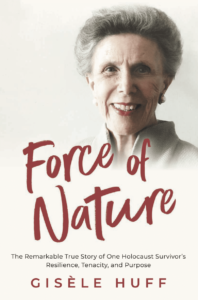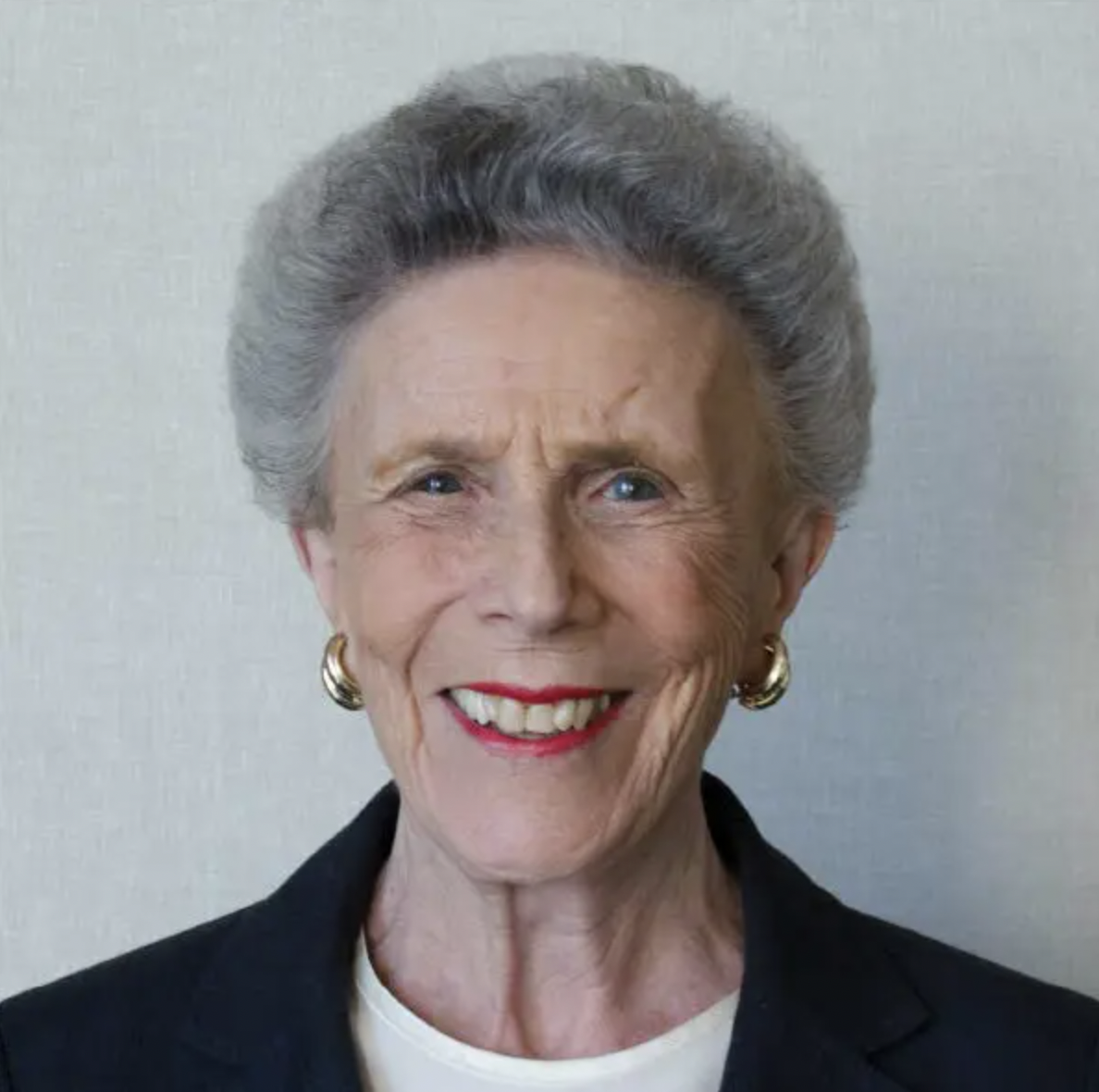There is a mind shift required and a definitive movement towards empowering the child to incrementally take control of their education. In other words, to make them responsible — not only for acquiring knowledge but also for how to learn.
Dr. Gisèle Huff, President of the Gerald Huff Fund for Humanity
 A creator and signer of “A Transformational Vision for Education in the US,” Gisèle Huff was a part of Education Reimagined’s story from our earliest days. In her newly published memoir, Force of Nature, Gisèle shares her journey of resilience, hope, and purpose. In the following interview, we discuss Gisèle’s work in education, Universal Basic Income (UBI), and where these areas overlap.
A creator and signer of “A Transformational Vision for Education in the US,” Gisèle Huff was a part of Education Reimagined’s story from our earliest days. In her newly published memoir, Force of Nature, Gisèle shares her journey of resilience, hope, and purpose. In the following interview, we discuss Gisèle’s work in education, Universal Basic Income (UBI), and where these areas overlap.
Q: How did you initially become involved with Education Reimagined?
Gisèle: In 2005, I met the late Clayton Christensen, who coined the phrase “disruptive innovation.” His work was very well-known in the business world, and his book, The Innovator’s Dilemma, was one of the most important books of the 1990s. By 2005, he was using that lens to explore social problems, particularly how we approach education.
This was when I heard him speaking at a conference and what he shared gave me a new lens through which to consider education. He framed the education system as a $400+ billion business and if we take that business framing, innovation has to be part of the game. Yet, in education, Clayton reflected, there are so many aspects that remain stagnant without any real drive for innovation. It was striking for me and resonated given my past work in the corporate world. At the time, I was the Executive Director of the Jaquelin Hume Foundation, and at the end of Clayton’s presentation, I handed him my card and offered to fund some of his work going forward.
Spurred by this presentation and my own ideas about education reform, I began to advocate for the introduction of technology as an integral part of K-12. However, I met resistance until Clayton and his co-authors, Michael Horn and Curtis Johnson, published their seminal book in 2008, Disrupting Class: How Disruptive Innovation Will Change the Way the World Learns. After that, the national conversation changed and people began to talk about blended learning.
Then, in 2013, as the dialogue that would eventually launch Education Reimagined was being organized by Kelly Young at Convergence, I was approached about joining the table. I’ve always been a one-woman office, and I don’t believe in committees, so I resisted at first. But, I looked at the list of people involved, and I thought, “I’m the only one here who will advocate for what I believe in. If I don’t participate, then these ideas I’ve been working towards won’t be represented.” So, that is the reason why I agreed to participate in the first place.
The whole experience of the vision creation process and dialogue was life-changing for me. It changed my thinking in a similar way to how Clayton did when talking about disruptive innovation and how my late son Gerald changed my mindset in how I view the economy and Universal Basic Income (UBI).
Through this work, I saw that, instead of all of the debate about education we hear in the news, we really need to ask people, “What is the purpose of education? How do you think it should be designed to equip your children to meet the challenges of the 21st century?”
Q: What initially inspired you to advocate for education?
Gisèle: I came to this country as a survivor of the Holocaust in France where I lived under the Germans for five years and where 18 members of my family were killed in concentration camps. I was 11 when I came to the United States, and I didn’t speak any English. My mother and I had $400 in our pockets. We lived with my aunt, grandmother, and cousin — the five of us in a one-bedroom apartment in the South Bronx.
The local public school was a culture shock for me. I entered 6th grade not speaking English, and I was one of three white children in a classroom of about 30 black children. It was my experience that we were being warehoused, rather than educated. I was always a very good student in France and I was appalled at what was happening in the most progressive American city, New York, in 1947. I never forgot that experience.
I got married right after high school and didn’t attend college until I was 32. I graduated from Hunter College and then earned my Ph.D. at Columbia University in political philosophy over a 9-year period that was the most exhilarating of my life. Education was the thing that enabled me to get the job that I eventually had with the Jaquelin Hume Foundation, which provided me with so many opportunities I wouldn’t have had otherwise.
In addition to the advantages it affords individuals, I also see education as the lifeblood of democracy. K-12 education is the most fundamental aspect of a working democracy. People need to vote and understand what they’re voting for. If we want a functioning democracy, we need an informed and educated populace so they can get involved, know what they’re voting for, and maybe even engage in politics themselves.
It was this combination of my own educational experiences and the important role I know it plays in our society’s very functioning that led me to work in and advocate for education innovation.
Kids are malleable and if you give them responsibility, they thrive in it. In a similar way, UBI is about empowering people to make their own decisions about their own life.
Dr. Gisèle Huff, President of the Gerald Huff Fund for Humanity
Q: I understand the majority of your current work focuses on Universal Basic Income (UBI). What overlaps do you see between UBI and education transformation?
Gisèle: It’s based on the same underlying philosophical concept that Education Reimagined represents. There is a mind shift required and a definitive movement towards empowering the child to incrementally take control of their education. In other words, to make them responsible — not only for acquiring knowledge but also for how to learn. By knowing that, you can learn in-depth about whatever it is you need to know.
Today, there is more knowledge in the device you carry in your pocket than that of all of the teachers and professors in the world put together. We should be teaching our young people how to learn and empowering them to love learning, giving them positive (instead of punitive) reinforcement. Even if they fail in a project, they will have learned and have built the skills to know how to keep learning and solve problems.
That mindset is about empowering kids by giving them the skills and dispositions to acquire the right kind of knowledge for the challenges of the 21st century, not what was happening in 1950. That empowerment is exactly the same kind of empowerment that UBI seeks to give to people in the economic system, but a transfer of funds, rather than a transfer of knowledge.
Government assistance involves much red tape and dictates how people need to use it. Kids are malleable and if you give them responsibility, they thrive in it. In a similar way, UBI is about empowering people to make their own decisions about their own life. Studies and pilots have shown over and over that if you give people money, they’ll use it for things they need.
If you let people decide what they do with the money, invariably they do very good things because they know better than anybody what they need, just like a kid knows what interests them, even if it’s momentary. Those interests or needs might change, but if you have the skills and dispositions to succeed — or the economic ability, in the case of UBI — you have a floor to build your life upon in a way that suits you and your needs. Of course, there will always be outliers, but we should be trusting people to make decisions that are right for them.
Q: Awareness for and interest in UBI has been increasing recently. Why do you think it’s so necessary today?
Gisèle: I started the Gerald Huff Fund for Humanity in memory of my late son who was a strong supporter of UBI. He came to it from the mindset of technological unemployment. He was the principal software engineer for the Model 3 Tesla, connecting the car to the cloud. He was very concerned about technology taking over too many jobs, including in tech. What do you do in a consumer society where you no longer have any consumers, just robots who don’t pay taxes and don’t shop?
Corporations are not taking the long view of the economy, ignoring the effect that automation is having on the world of work. Businesses are intent on maximizing profits and pleasing their shareholders, rather than investing in the future. This is not sustainable.
UBI is a transitional solution; it’s not the end-all and be-all. It’s a way of getting us through the convolutions, just like how we needed to transition after the Industrial Revolution, this is just more widespread. There’s potential to automate everything, from driving to hospitality to healthcare. It’s endless and pervasive. I believe UBI is fundamental to saving our country and way of life. Working to implement it is what I’m going to do for the rest of my life.
To learn more about Gisèle Huff’s life, including her work with Education Reimagined, check out her memoir, Force of Nature: The Remarkable True Story of One Holocaust Survivor’s Resilience, Tenacity, and Purpose. All proceeds of the book will go to support the Gerald Huff Fund for Humanity.

